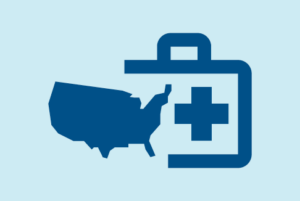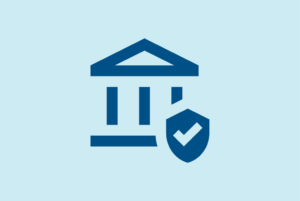Congressional leaders and President Biden continue to try to find agreement on a plan to raise the federal debt limit. The borrowing limit for the federal government is set in statute and once it’s reached (known as the X date) the federal government can no longer meet its financial obligations. Once the limit is reached, it is unclear how the U.S. Treasury will disburse a limited pool of funds collected daily against a growing list of unmet obligations, including Medicare and Medicaid reimbursements to providers.
While the debt limit has not been breached before, it is expected that if an agreement is not reached, the Treasury will have two options for paying its bills: either prioritize payments or it can hold them until it has sufficient funds to pay all bills due on a given day.
Payment Prioritization: In an attempt to avoid defaulting on interest and principal payments due on U.S. debt, the Treasury could prioritize these two payments. It is unclear what other payments (e.g., Social Security, military active duty pay, Medicare and Medicaid payments) might be included in the prioritization hierarchy. Even if Medicare and Medicaid are included in the prioritization hierarchy, there will likely be days when there are insufficient funds available to cover interest and principal payments as well as Medicare and Medicaid payments.
Hold Payments: The Treasury could elect to hold payments until it has received sufficient cash to meet an entire day’s obligations and then make those payments at once. Under this scenario, for example, it may take the Treasury several days to accumulate sufficient funds to pay bills. While the Treasury would pay all bills due on a first-in, first-out basis, the net effect would be a growing backlog of payments.
Regardless of which approach to payments the Treasury takes should it reach the X date, it is highly likely that Medicare and Medicaid payments will be delayed. The size of the impact will vary depending on the length of time it takes Congress to lift the debt ceiling after the X date.
CHA is monitoring this situation closely and will provide additional information when it is available.


